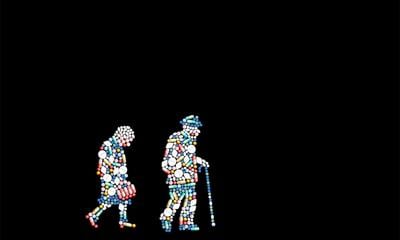Educate before you medicate
Phyllis Brown was one of the rare 75-year-olds who had never taken medication, other than a daily vitamin and an occasional aspirin. When Phyllis fell, broke her hip, and returned home after three months in rehab, she had a regimen of four prescriptions for pain, sleeping, and arthritis. Anesthesia from the surgery had left her “a little fuzzy-headed,” and Phyllis found that keeping track of her medicines was difficult. Luckily, when her neighbor, Jerry, took her to the drugstore, the pharmacist asked her if she had any questions.
Phyllis learned a lot about seniors and their safe use of medications:
- Have a relationship with your pharmacist. He or she can be a great source of information. Don’t be afraid to ask questions.
- Use the same pharmacy for all your medications. That way, if there are potential drug interactions, the pharmacist will be able to alert you right away and talk with your physician about a safer choice. Ask your pharmacist if all your prescriptions can be refilled at the same time to avoid frequent trips.
- Know why you’re taking each drug. When your healthcare provider prescribes a new medication or changes a dosage, ask why, what the potential side effects might be, what time of day to take it, and whether it should be taken on a full or empty stomach. Then, follow through on those directions; don’t skip a pill, for example.
- Keep a list of all your medications in your wallet or purse. Include drug name, dosage and frequency. Remember to add over-the-counter pills and liquids, such as vitamins, herbal preparations, patches, and nasal sprays.
- Never take expired medications and never let anyone else take your medications.
- Use a pill organizer to help monitor your medication schedule. Organizers can be found in most drug stores and at Simple Comforts in Warrenton.
As people age, their bodies respond differently to medicines than when they were younger. Age-related changes in the major organs (liver, kidneys, heart, etc.), as well as to eyesight and even memory, may cause seniors to increase their risk of overdose or side effects. Medication safety is something to take seriously.
If you need help understanding your prescriptions, do not hesitate to talk with your primary care doctor, your pharmacist, or even your family before making a costly mistake. Travis Hale, PharmD, of Remington Drug, sums up his advice to older adults by saying, “Talk before you take!”
Phyllis Brown followed her pharmacist’s tips and was able to better understand and coordinate her medication usage. Having recovered from her hip operation, she is now back to taking only her arthritis pill once a day.
Helpful Resources
Aging Together
Call Aging Together, 540-829-6405, for a free brochure, “Your Medicine: Be Smart. Be Safe,” that includes a medicine wallet card and tips on medication safety.
Websites
The Art of Aging Expo
Join the fun on Tuesday, October 3, 2017, 9 a.m. to 1 p.m., at the Germanna Community College/Culpeper Campus, for “The Art of Aging Expo.” Learn from helpful seminars, visit the 50-plus vendor booths, antiques appraiser, free shredding truck, giveaways, and much more. Free and open to the public. Call Aging Together at 540-829-6405 or email gbiggs@agingtogether.org for more information.


(0) comments
Welcome to the discussion.
Log In
Keep it Clean. Please avoid obscene, vulgar, lewd, racist or sexually-oriented language.
PLEASE TURN OFF YOUR CAPS LOCK.
Don't Threaten. Threats of harming another person will not be tolerated.
Be Truthful. Don't knowingly lie about anyone or anything.
Be Nice. No racism, sexism or any sort of -ism that is degrading to another person.
Be Proactive. Use the 'Report' link on each comment to let us know of abusive posts.
Share with Us. We'd love to hear eyewitness accounts, the history behind an article.